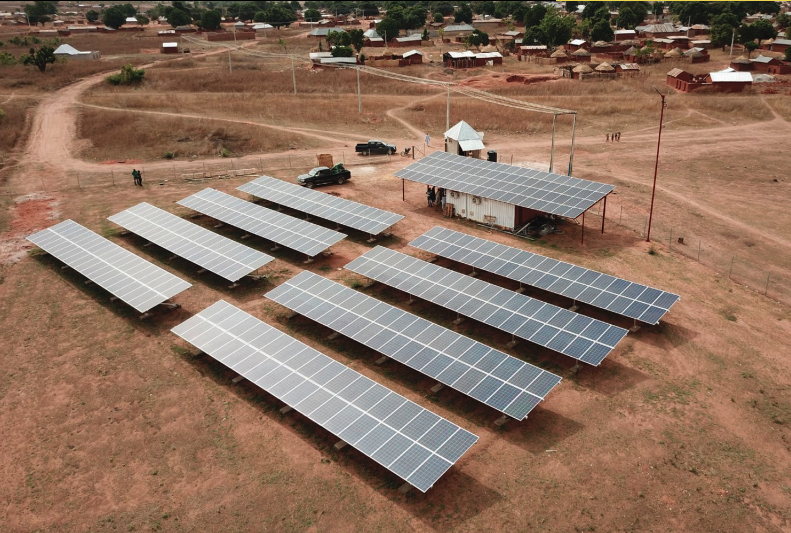ImpactAlpha, April 13 – A new marketplace has brokered its first deal: the “sale” of $2 million in improved education and mental health outcomes for children in Ukraine.
New York-based OutcomesX is using the transaction to launch its platform to transform social impact into tradeable assets in the form of “verified impact units” on social challenges including education, public health and youth development. Much like carbon credits, the impact units can be bought by corporate and government to advance policy agendas, meet public pledges and burnish reputations.
Like carbon credits, OutcomesX’s impact units will face scrutiny for their rigor and efficacy. By aggregating data and setting a price, the marketplace could help raise such performance. The first iteration enables buyers to search for organizations and outcomes for purchase. In the future, social outcomes could be fully tradeable, if not like pork bellies then at least like carbon.
“Ultimately, we want to create a spot market to buy and sell social outcomes,” says Phyllis Kurlander Costanza, who headed social impact for the Swiss bank UBS before founding OutcomesX with Jason Saul, the founder of the Impact Genome Project.
OutcomesX is using a subset of 132 outcomes across a dozen themes from the genome project’s database of 2.2 million global nonprofits and social enterprises to source its initial supply of outcomes. For-profit OutcomesX has received early grant funding from google.org and Gates Foundation.
Pricing outcomes
For nonprofit service organizations and social enterprises, the marketplace promises to democratize access to corporate spending on social responsibility and community engagement. As CEO of the UBS Optimus Foundation, Costanza was an early backer of a development impact bond for girls education and maternal health in the Indian state of Rajasthan.
The bonds paid off, but Costanza said such instruments “are time consuming and complex and it takes years oftentimes to structure one of these deals.”
The bulk of global philanthropic capital flows to big organizations with development arms and corporate connections, Costanza says. Non-governmental organizations in Ukraine have faced obstacles accessing much of the $17 billion in humanitarian aid that has been pledged since Russia’s invasion last year.
“The whole goal of this is to create a more equitable space for social enterprises and nonprofits,” Costanza tells ImpactAlpha. “These organizations in Ukraine would never ever have been able to access UBS.”
For its first transaction, OutcomesX recruited 63 Ukrainian nonprofits to upload data proving their outcomes to the Impact Genome Project. The education outcome will be measured by improvements in test scores, grades and enrollment; for mental health, improvements in emotional, psychological and social well-being.
The documentation of the full costs of achieving the results helped set a price per outcome. As the buyer, UBS Optimus Foundation selected a portfolio or organizations from which to purchase “verified impact units” totaling $2 million. UBS had launched an emergency relief fund for Ukrain
e to raise funds from its clients and employees. OutcomesX transmitted the funds to the local organizations, including EdCamp and Divchata.
For the organizations, the outcomes payments are an additional revenue stream on top of their other fundraising. Costanza is upfront that organizations are able to effectively double-count their outcomes – and use the revenues to fund more outcomes. “So now they deliver another one thousand outcomes that they get verified again from our marketplace,” she says. “They constantly have the ability to sell those outcomes” that were kickstarted by the original funder.
OutcomesX’s pricing and trading mechanisms could lead to additional products such as a kind of “philanthropic index fund” to aggregate the best outcomes at the best price, with a thematic or place-based lens. OutcomesX is developing such a project around veterans’ services. Community foundations could target economic development in their geographies.
“There could be a number of organizations in this index and everybody gets that slice of it,” Costanza said. “And we verify the outcomes of all the organizations in the index.”
Climate co-benefits
The growing skepticism around carbon credits presents an opportunity for OutcomesX. Carbon projects that can demonstrate tangible “co-benefits” such as improved local livelihoods, biodiversity and healthier communities fetch higher prices on voluntary markets.
“We’re working with the existing organizations, registries and verifiers to be able to verify social co-benefits for carbon offsets,” she says.
Costanza is keen to point out that OutcomesX’s verified impact units differ from carbon credits in an important way: “A carbon offset is allowing somebody else to pollute something,” says Costanza. “We’re not an offset.”
Nature-based marketplace
Like social-service organizations, developers of local, small or early stage nature-based solutions lack access to capital. More than two-thirds of carbon credits are generated by 5% of project developers.
Integrity Global Partners, launched this week by Cheri Sugal, hopes to improve efficiency for investors and thousands of nature-based project developers that lack access to the market.
“There’s a real gap in the market for this ability to enable the project developers to access that capital,” said Sugal, who spent 30 years structuring financing for conservation projects at The Nature Conservancy and the World Bank.
Integrity Global will work with developers to de-risk, verify and package projects to attract investors.
“We’re trying to restore the credibility,” Sugal says.





